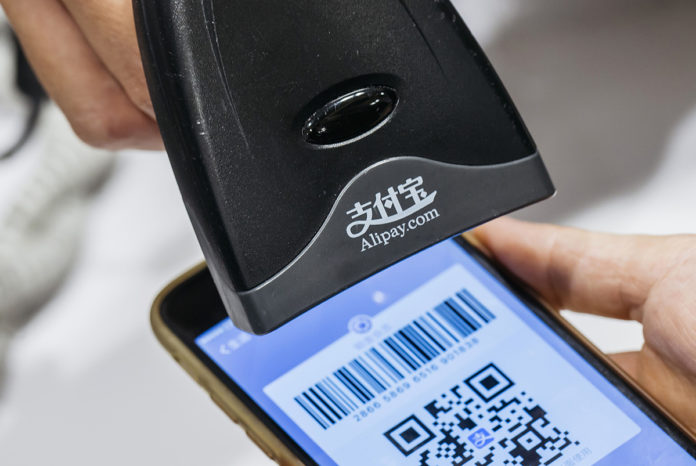Chinese e-commerce group Alibaba Group Holding Limited is not interested at the moment in creating an Alipay independent mobile payment service for the MSAR, the group told Business Daily.
On Wednesday the group launched AlipayHK, a mobile payment app based upon its Chinese counterpart Alipay but focused on Hong Kong users.
When questioned by Business Daily if it was planning to launch a similar platform for the Macau market Alibaba responded it is ‘currently focusing on upgrading user experience in Hong Kong [and] was not considering copying this product in other regions at this stage’.
AlipayHK was launched through Ant Financial Services Group – an affiliate of the Alibaba group that operates its Alipay platform – which obtained a stored value facilities (SVF) licence from the Hong Kong Monetary Authority, allowing it to provide third-party payment services in the city.
In 2015, Macau Pass SA became Alipay’s authorised agent for the settlement of mobile payment transactions made by local consumers, with AMCM regulations requiring a partnership with a local recognised credit institution to conduct third-party payment activities in the MSAR.
Yesterday, Secretary for Economy and Finance Lionel Leong Vai Tac said in a plenary session at the Legislative Assembly (AL) that with Alipay being a Mainland China entity its co-ordination with local financial entities was a “long process”.
“[Alipay] direct articulation with local bank accounts implies matters related to commercial activities between external payment institutions and local financial entities, especially its cost-effectiveness and cross-border capital flow, connecting it to Mainland China policies,” the Secretary stated.
According to the him, the Macau Economic Services (DSE) and the Monetary Authority of Macau (AMCM) are discussing viable methods for Alipay to create a local institution to serve local residents or extend its co-operation with other local entities.
“Before [granting] a licence we need to take into consideration the stability of our finance system and take into account collaboration with Macau stores,” the Secretary added.
According to Secretary Leong, in the first three months of this year 1,900 terminals performed Alipay mobile payments through Macau Pass, covering more than 500 local stores.
“Macau Pass is studying the viability of keeping its co-operation with Alipay,” he added.
Behind the e-commerce curve
The statements were made in response to an interpellation by legislator Angela Leong On Kei, whereby the Executive Director of local casino operator SJM asked the government what polices it had implemented to develop mobile payments in Macau.
According to the legislator, Mainland Chinese tourists prefer payments effected through platforms such as Alipay and Wechat Play, and with 20 million visitors to the MSAR in 2016 originating from Mainland China the government should be focusing more effort in developing this area.
“Although the government has implemented several measures to promote mobile payments, tourists still consider its range limited, since mobile payments only cover a small percentage of restaurants, commerce and large-scale retail centres, while not covering health centres and tax payments,” she added.
In his response, Secretary Leong said developing e-commerce was one of the measures included in the government’s five-year plan presented last year and that several specific measures had been applied by the government’s Interdepartmental E-commerce work group.
“In the future we will be able to use Big Data collected from e-commerce to know what foreign consumers want and develop better initiatives for the tourism industry,” he said.
























